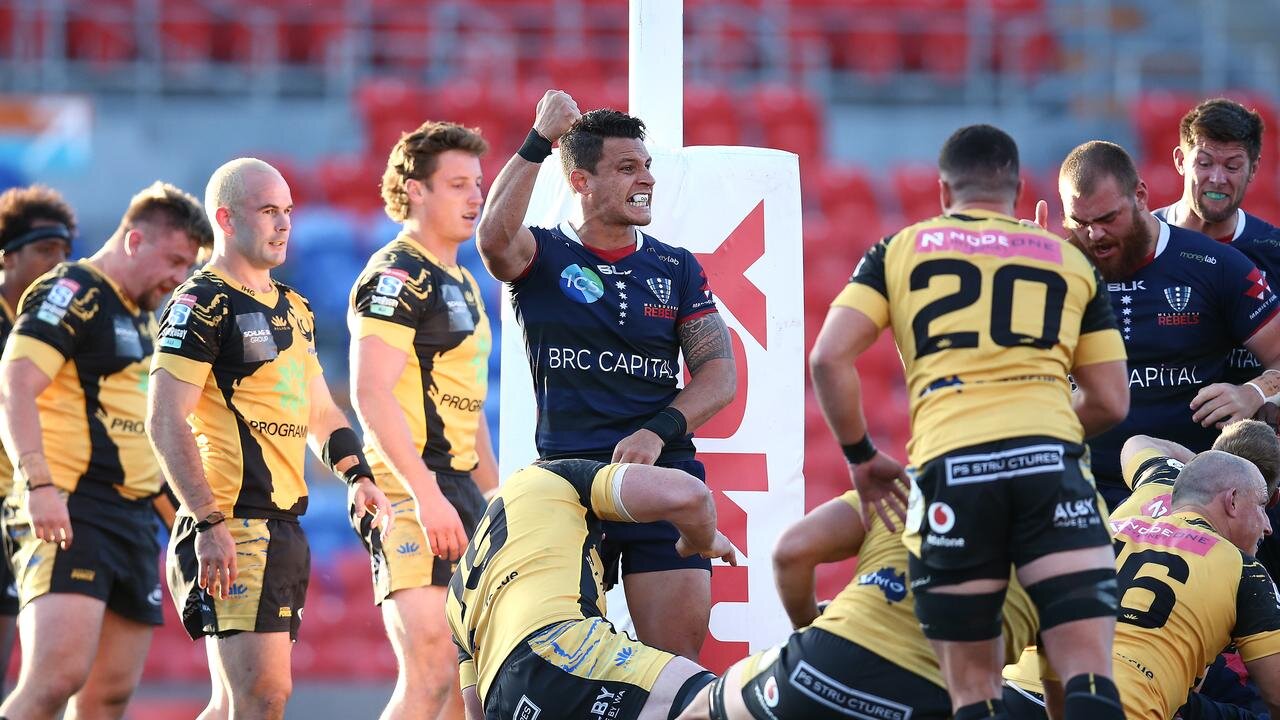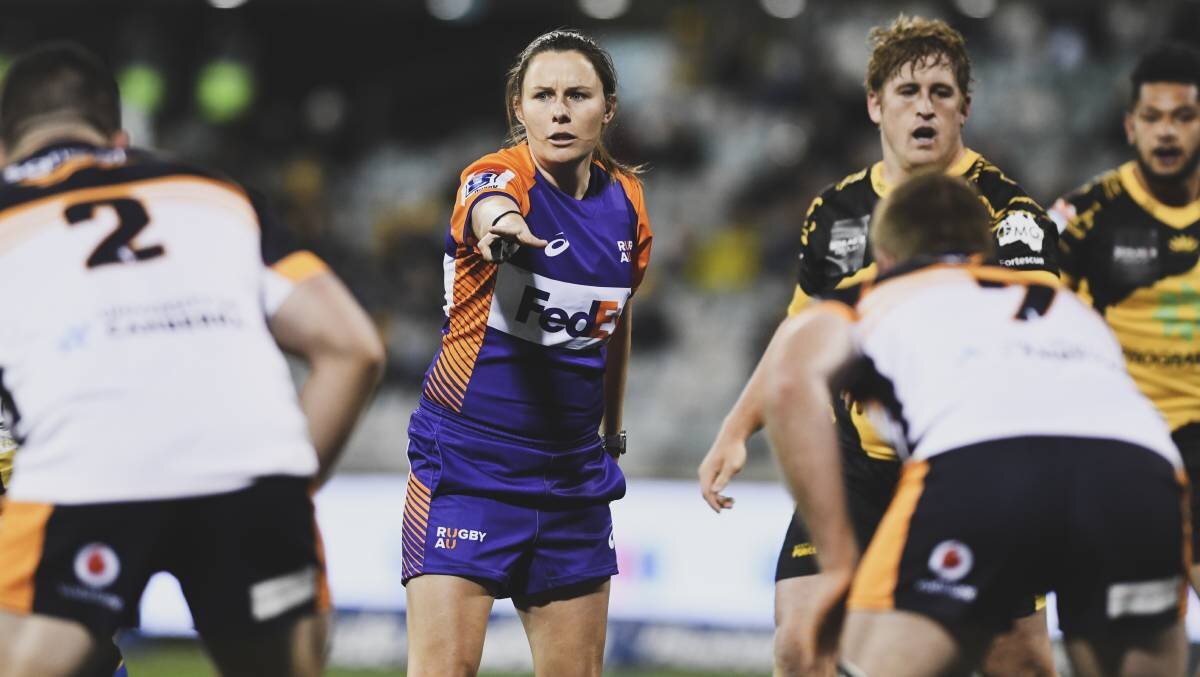The case for Fiji entering Super Rugby
Fiji players sing their national anthem before a match in 2019
Credit: Phil Walter/Getty Images
The issue surrounding the structure of world rugby in the coming years is a weighty one at this moment in time.
With the international lockdown causing havoc in the schedules of nations and teams around the world at every level, the conversation has sprung up anew about the way the future of the sport will work.
With discussions about a global approach to international fixtures ongoing in the last 18 months, and the proposed Nations Championship plans ultimately shelved, the future of Tier 2 nations has been under the microscope.
The question remains about how to give these nations the resources to grow and expand in the future, as well as how to provide a domestic game that supports these growing international sides.
These questions been asked more often about Fiji than any other nation.
The pure talent in their roster and enthusiasm for the game in the island nation gives them a head-start in terms of potential development, but crucial junctures to give Fiji a chance to capitalise on these opportunities have been missed.
The most major of these was the chance to include Fiji in the expanded Super Rugby competition.
One-team nations in Super Rugby are not uncommon, with the Jaguares (Argentina) and Sunwolves (Japan) being given invaluable exposure to top-class domestic rugby.
It’s hard to say their national teams haven’t reaped the rewards, so should Fiji be given the chance as well?
The Flanker firmly believes it should, and here are the reasons why.
The players…
Just look at the players coming out of Fiji today. One glance at their 2019 World Cup squad is enough to prove they have all the building blocks to be one of the best teams on the planet.
Let me just throw some names at you quickly:
Semi Radradra.
Josh Tuisova.
Viliame Mata.
Peceli Yato.
Ben Volavola.
Leone Nakarawa.
These are the calibre of players that have come out of the island in recent years, with all of them representing Fiji at the recent World Cup.
Their ranks are not thinning either, with flying Melbourne Storm winger Suliasi Vunivalu set to make the leap from the NRL to Union with the Queensland Reds in 2021.
The issue? The lack of exposure to top-level rugby in Fiji leads to players moving on to Australia or New Zealand to ply their trade and ultimately get swept up into those nations’ systems.
What is more, those that remain loyal to Fiji mostly end up playing in Northern Hemisphere competitions, be it in England, Scotland or France
Once there, they have little to no exposure to any of their international teammates and national team training time is severely limited due to lack of matches.
The inherent skills these players possess gives them enough ability to form a national team of genuine quality, but the introduction of a club team can offer them even more.
It will give them access to top-level competition in Super Rugby and also ensure more and more talented players are given time together to develop combinations and relationships.
One need only look at the growth of Argentinian rugby over the last decade to see evidence of that plan in action.
The coaches…
Former Fiji sevens coach Ben Ryan
Credit: Getty Images
Fiji has already had the steering hand of some of the most respected coaches in the game, with the likes of current Wales coach Wayne Pivac and former Wallabies boss Greg Smith taking the reins previously.
Ben Ryan also made quite the impression on the game with his success as coach of the national sevens team while Vern Cotter, currently the 15-man team head coach, who is well-known to world audiences.
The quality of the players available to Fiji is an intriguing prospect for any coach, but the simple equation is that big coaches go to big competitions.
Look at the growth of the Japanese Top League - the infrastructure put in place, coupled with talented players, has begun to attract bigger and bigger names in both coaching and playing, with the 2019 World Cup showing the fruits of that labour for the national team.
A Fijian team’s presence in Super Rugby would make the nation a much more commercially and professionally attractive proposition to coaches around the world, which leads to more players getting exposed to top-class development.
This is something that can only help the game in Fiji in the long run, as players that are used to playing on instinct get the chance to work with top class coaches.
Ultimately, the players will learn more about the discipline, graft and technical nous needed to take the step into being a top-level international team.
The finances…
One of the great problems that has historically limited the growth of rugby in the Pacific has been the lack of money available to their unions.
This problem came to a head in 2017, when the president of the Samoa Rugby Union officially declared the body bankrupt before they were due to fly to the Northern Hemisphere for the Autumn International Series.
This led to an appeal for public donations to keep the body operating, as well as significant contributions from the host nations on top of the costs they already cover.
This problem appears in all the major rugby-playing island nations, and Fiji is no different.
The shortfall in finances has, admittedly, been a somewhat self-inflicted situation. Dan Leo, now CEO of the Pacific Rugby Players Welfare organisation, told the BBC in 2017 that the problem was “people making business decisions without any professional business experience or any business nous”.
Former Samoan international Dan Leo, now CEO of Pacific Rugby Players Welfare
Credit: PA Images
He also said: “Rugby is being run as a business, that's a model that needs to be embraced in the islands. It's no longer just the game we love, it's got to make financial sense as well.”
As much as involving Fiji in Super Rugby would not be a financial breeze for the country’s union, these seem to be the kinds of decisions that would benefit the union as a business.
However, the world governing bodies also need to ensure this transition is made by supporting Fiji financially to do so.
Be it improving facilities and stadiums, maximising income from fan travel and sponsorship or just keeping the players paid, this would need to be a joint venture if it’s going to work.
However, it is one that has amazing implications for the future of not just Fijian rugby, but Pacific Island rugby as a whole.
The audiences…
There is a reason so many Fijian players are so highly-rated and talked about across the rugby world. It is because, quite simply, they are freakish athletes who are amazing players to watch.
Some of the best Fijian players have attracted world audiences to watch them play - Viliame Mata’s offloading ability (see above) set the Northern Hemisphere on fire in 2019, Semi Radradra has been winning plaudits since he left the Parramatta Eels to join Toulon and Peceli Yato produced one of the best performances of the World Cup in 2019 against Australia, before it was cut short due to a head knock.
Giving greater exposure to these players by allowing them to take a globally-televised stage in Super Rugby would mean that not only would people be tuning in more and more to watch them, it would make Fijian rugby more commercially viable as the players involved become genuine world stars.
This presents an opportunity for not only broadcast rights deals to pump some money into Fijian rugby but also for increased third-party investment.
Make no mistake though - any inclusion of Fiji would be for a much higher purpose than entertainment. Financially, and in status terms, it would be a groundbreaking step forward for Pacific Island rugby.
Plus, they would not just be there as some sort of rugby version of the Harlem Globetrotters - they would be there because they deserve to be there.
…the problem
When you stack up all the positives that would come from Fiji being introduced in some form to Super Rugby, it’s easy to sit here and call it a no-brainer.
However, as a basically okay 1994 film starring Ben Stiller, Ethan Hawke and Winona Ryder told us, reality bites.
The question needs to be asked about how the introduction would work first from a logistical point of view, with the current Super Rugby competition existing in a balance.
The three-conference system will be scrapped after the Sunwolves were removed from the competition - another great shame coming after the heroics of the Japanese national team at its home World Cup - in favour of a two-conference system with seven teams each.
Finding room for a Fijian team in the competition as it currently stands would require another shakeup of the system, which SANZAAR might not be so keen to take on so soon.
The other problem that needs exploring is the ability of Fiji to handle the financial demands of the competition - are their facilities good enough to house top-level games on a regular basis? Does their union have the funds to finance the venture in the first instance and, if not, where would that money come from?
If the facilities are not good enough in Fiji, is it fair to ask a team to potentially base themselves out of Australia for the duration of a competition and lose any sense of home advantage?
It cannot be ignored that there are questions that would need to be answered before Fiji was introduced to Super Rugby, but the counter-argument is that not only is it still a worthwhile venture of the health of the global game, it is also something that should have been understood and put in motion a long time ago.
As governing body World Rugby continues to deliberate the possibilities for the continued health of the international game, the growth of nations like Fiji, Japan and the USA is something they are going to have to address sooner rather than later.
But, we have been saying this for some time. It is time for the governing bodies to put their money where their mouth is.













